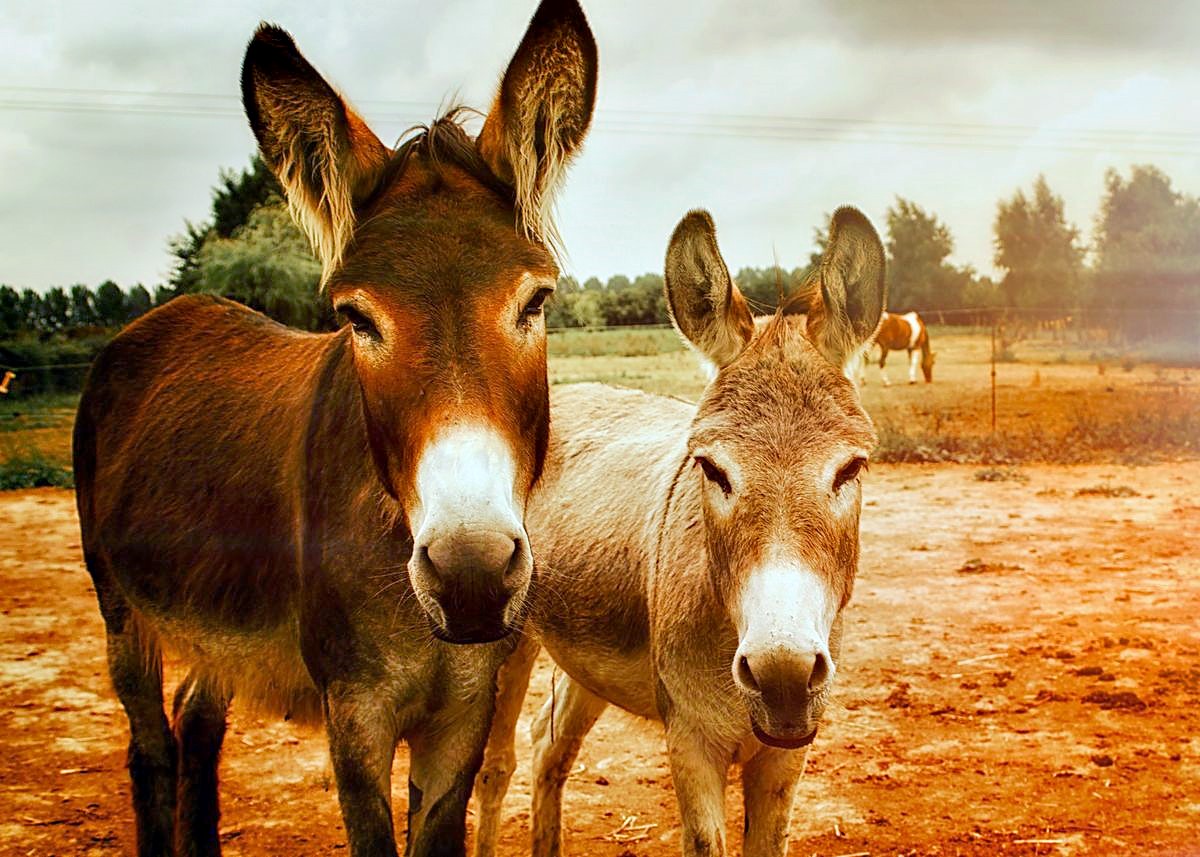Australia, a land of unique wonders, found itself in a peculiar predicament when an army of donkeys decided to make it their home. 🐴🐴🐴 With no natural predators like lions, tigers, or leopards to keep their population in check, these grass-munching invaders thrived and multiplied at an alarming rate.
🌿 The Humble Beginnings of a Furry Conquest
Originally brought in by settlers as trusty companions, a few donkeys managed to escape into the wild. Little did they know that the Australian outback would be a paradise for these resilient creatures. With abundant space and scarce predators, the donkey population exploded, reaching a staggering five million strong. 😲
The donkeys’ ancestors, the African wild donkeys, were well-equipped for the harsh Australian landscape. Unlike their horse cousins who preferred to roam in herds on the open plains, wild donkeys were territorial loners, fiercely guarding their domain. 🌵 This territorial nature, coupled with their ability to survive on meager resources like tree bark and leaves, allowed the donkeys to thrive in the arid Australian interior.
🐺 Causing a Ruckus in the Land Down Under
As the donkey army expanded, they began to encroach on the territories of native wildlife and farmlands. Farmers and ranchers watched in despair as their precious grazing lands were devoured by these hungry invaders. The local ecosystem found itself under siege, with many species struggling to compete for dwindling resources. 🌾
The donkeys’ impact was far-reaching. Their insatiable appetites and unwavering determination to stake their claim on the land disrupted the delicate balance of the Australian wilderness. Native plants and animals that had adapted to the harsh conditions over millions of years found themselves outcompeted by these resilient newcomers. 🌳🐨
💥 Battle Lines Drawn
Faced with this furry onslaught, authorities in Western Australia adopted a no-nonsense approach. Helicopters armed with sharpshooters took to the skies, raining down a hail of bullets on the unsuspecting donkeys. Over the years, this aerial assault claimed the lives of over 570,000 donkeys, costing a staggering $78 million. 💰💸
The aerial culling was a costly endeavor, but the authorities deemed it necessary to protect the agricultural interests and fragile ecosystems of the region. Each donkey eliminated meant more grazing land for valuable livestock, and the potential for native species to reclaim their rightful place in the outback. 🐑🐮
Meanwhile, in the Northern Territory, a different strategy emerged. With a staggering 5 million donkeys roaming freely, the government saw an opportunity. Enter the gelatin industry, eager to exploit this abundant resource for their precious donkey hides. 🦴
🧪 Turning Lemons into Lemonade?
As discussions unfolded about tapping into this vast donkey reserve, some innovative farmers stumbled upon an unexpected solution. They discovered that donkeys made excellent guardians for their sheep and cattle, deterring the cunning Australian wild dogs from preying on their flocks. 🐑🐮
With their natural territorial instincts and fearless demeanor, these donkeys proved to be the perfect protectors. Farmers rejoiced as their losses dwindled, and the humble donkey found a new lease on life as a four-legged security force. 🛡️
The secret to the donkeys’ effectiveness as guardians lay in their ancestry. Descended from wild donkeys that had to fend off predators like African hunting dogs, these modern-day donkeys retained an innate distrust and aggression towards canine threats. 🐕🦺 Their large size, powerful kicks, and unwavering courage made them formidable adversaries for the Australian wild dogs, who quickly learned to steer clear of guarded flocks.
🌐 The Curious Case of the Gelatin Industry
While some donkeys found redemption as farm guardians, the gelatin industry’s appetite for their hides remained insatiable. With China’s ancient traditions fueling the demand for donkey-based remedies, the threat of overexploitation loomed large. 🇨🇳
Advocates of the gelatin industry argued that harvesting the donkeys could be a win-win situation, providing economic opportunities while addressing the ecological imbalance caused by the donkey invasion. However, critics voiced concerns about the ethical implications of such a practice, fearing that it could lead to unsustainable exploitation and cruelty towards these resilient animals. 🏭
As the world watched with bated breath, the fate of Australia’s donkey invaders hung in the balance. Would they be embraced as unlikely heroes or face a grim future in the name of tradition? Only time would tell. 🕰️
Throughout this saga, the donkeys themselves remained blissfully unaware of the debates surrounding their existence. They continued to graze, bray, and stake their claim on the Australian outback, a living embodiment of the resilience and adaptability that have characterized their species for millennia. 🌄
Copyright © 2024 Hea1th.net

